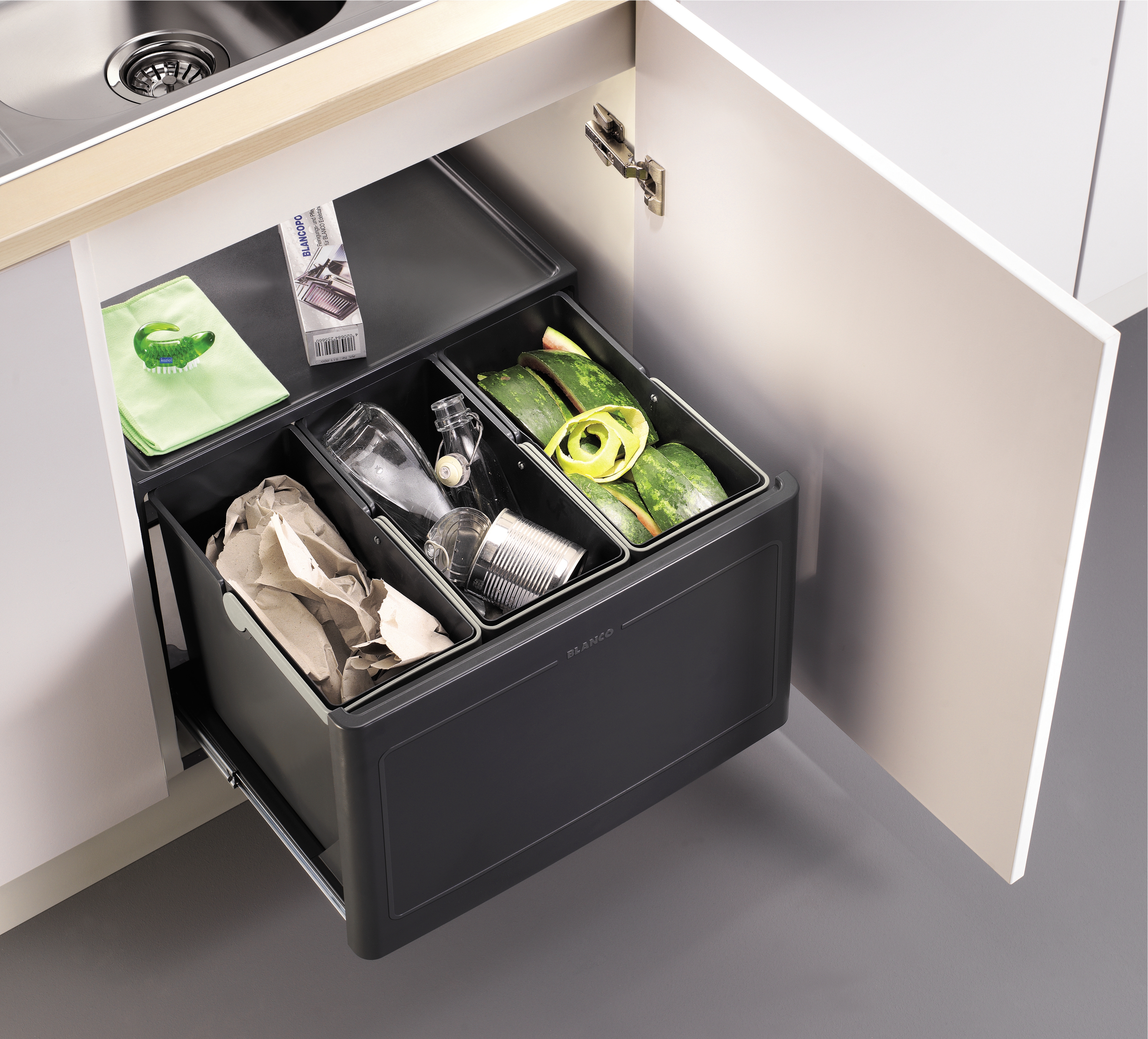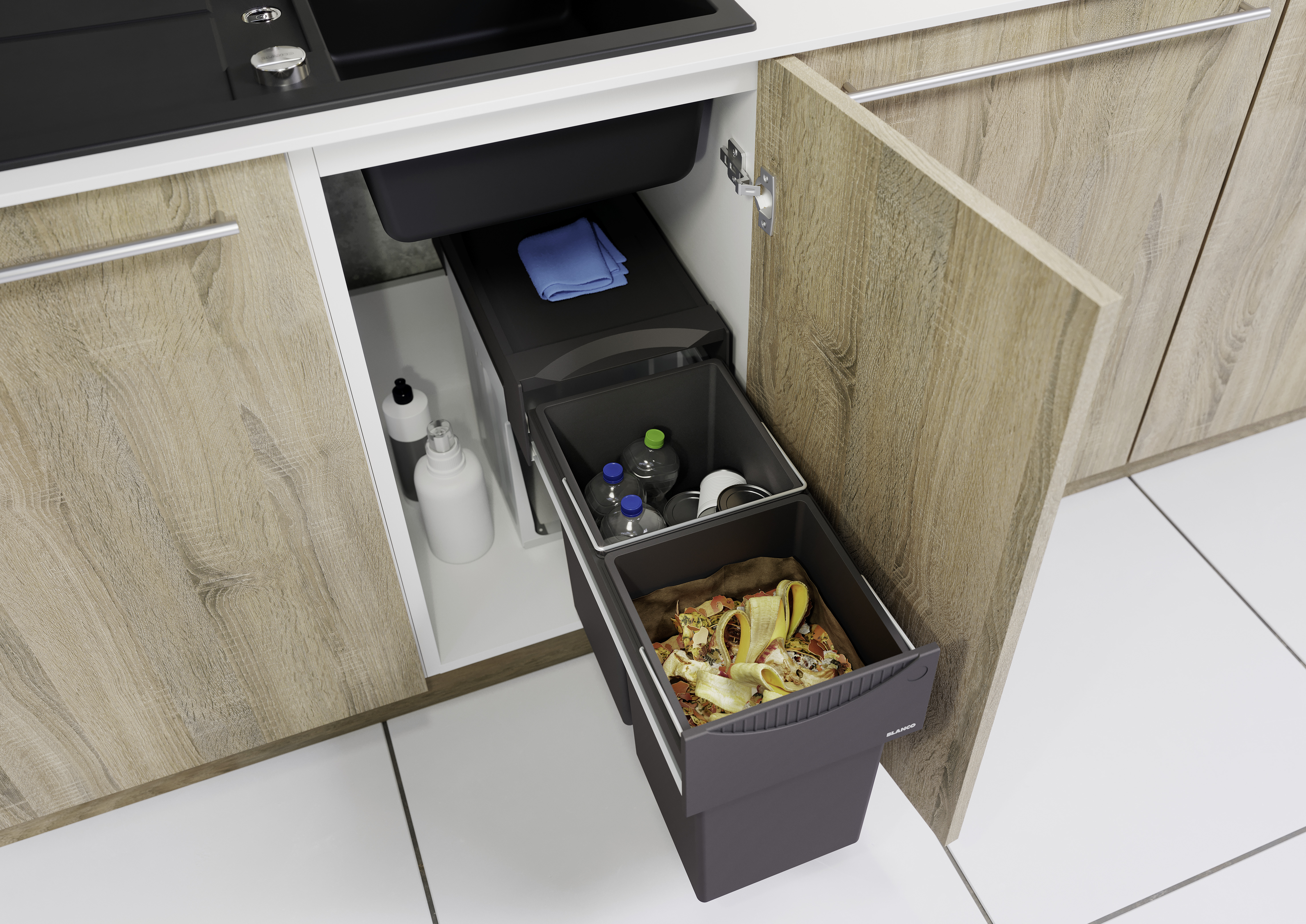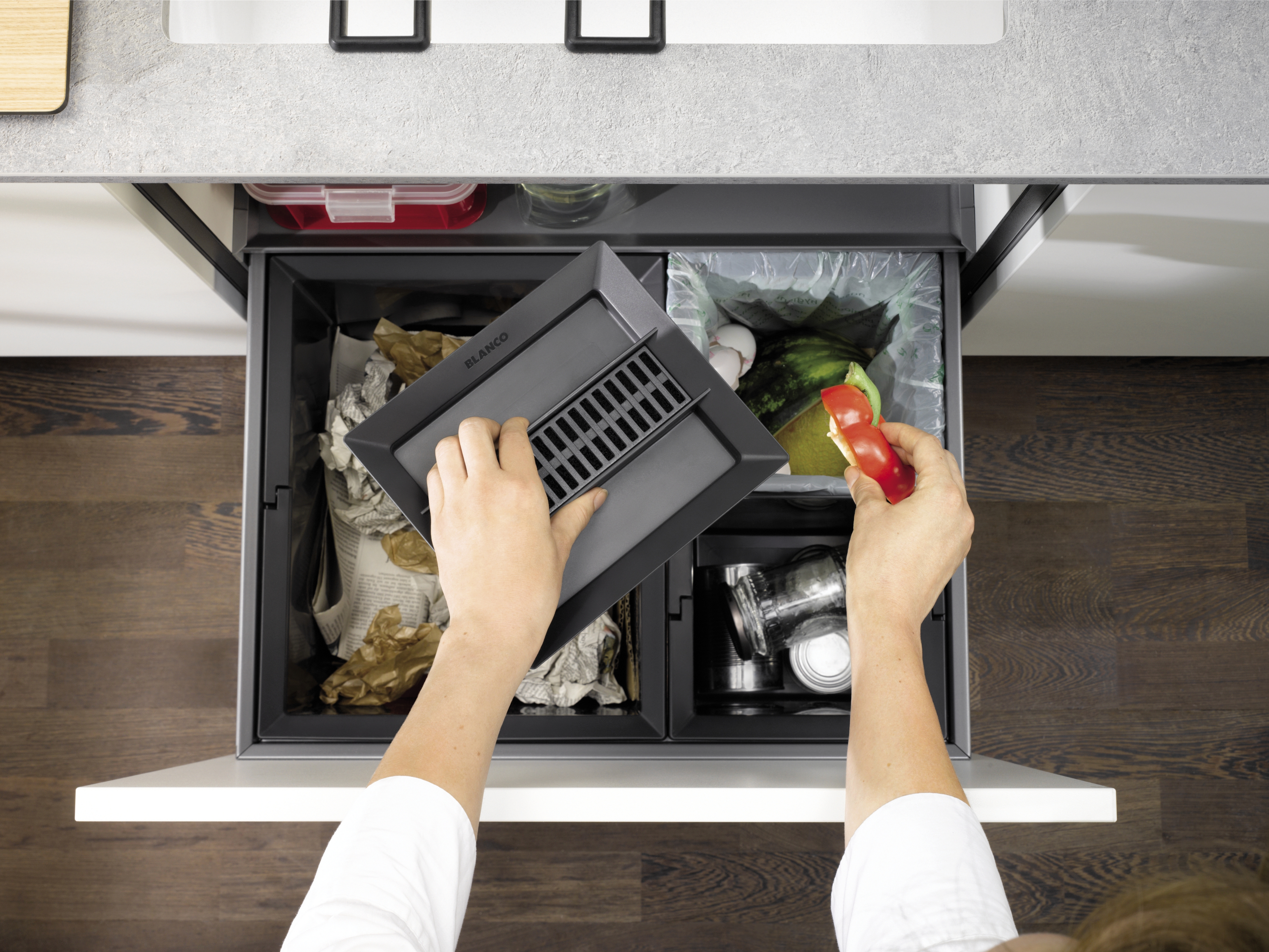Careful recycling in the kitchen
This is how you recycle correctly

Waste separation systems at home can be set up to save space

Getting clever about cutting down on packaging
Packaging requires a particularly large amount of space. This raises the question of whether it is possible to reduce the size of a lot of it. Milk cartons or boxes are great for stuffing outer packaging into, and even large plastic trays are often easy to fold down so that you have a smaller volume of waste.
Making things smaller in this way is permitted, whereas using a waste compactor, for example, to press down waste inside a rubbish bin is not permitted. This could easily cause the contents to become wedged, making it difficult to empty the bin.
Should you rinse out jars and tins before putting them in the recycling?
If used glass containers are going to be stored within your home for a relatively long period of time, you are advised to wash them out thoroughly in order to avoid any odours. A clean glass that is not being used any more should have any seals removed before it is stored. These do not belong in the used glass recycling system and can be thrown away in the recyclable waste container or other rubbish bin.
Store food waste without smells
